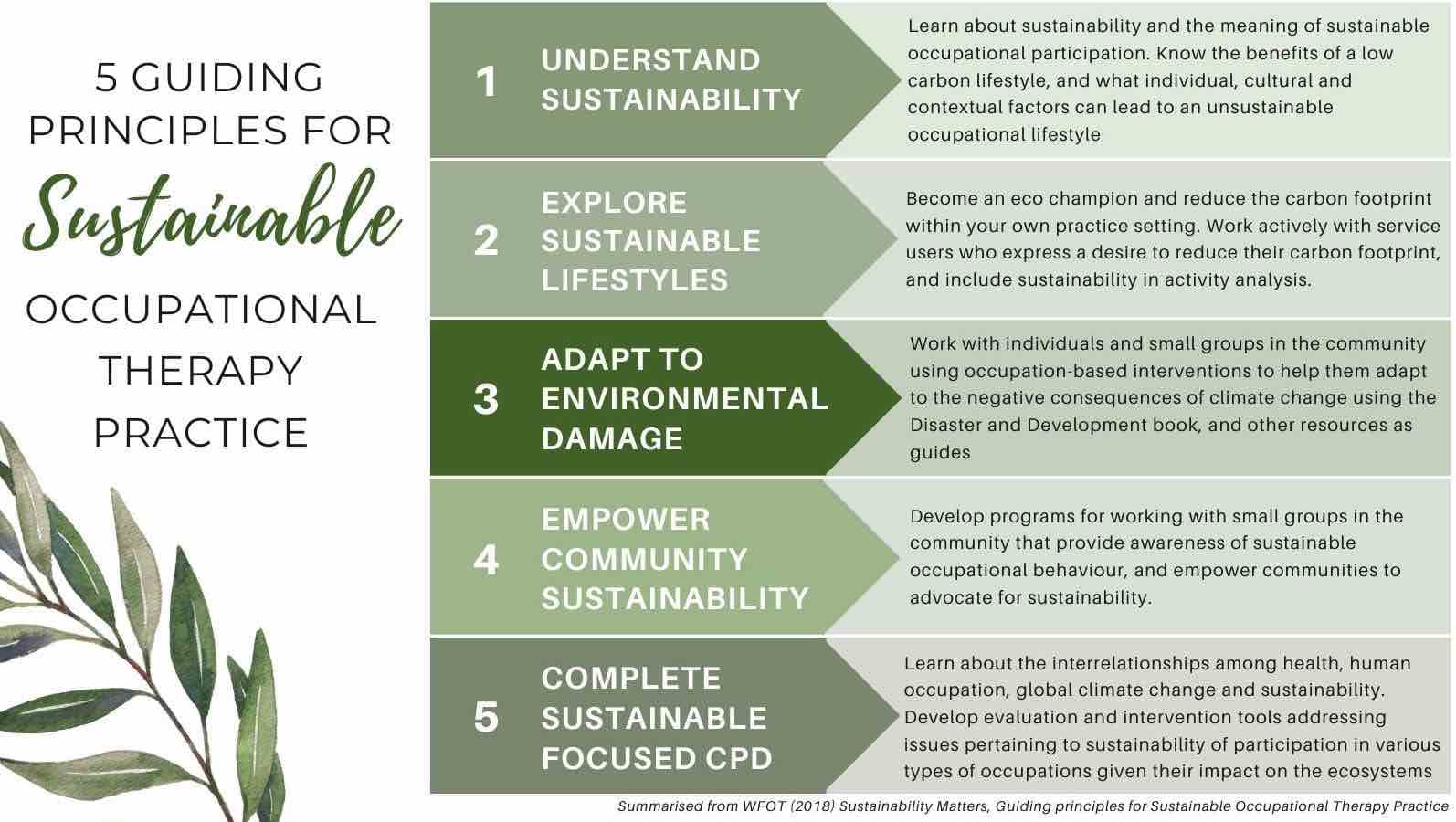
Sustainability included in the 2021 RCOT professional standards
Last month saw the publication of the new Professional standards for occupational therapy practice, conduct and ethics by the Royal College of Occupational Therapists (RCOT), which guides the practice of occupational therapists in the UK.
Since 2015, the Code of Ethics has advised occupational therapists to ‘‘to re-evaluate practice models and expand clinical reasoning about occupational performance to include sustainable practice’ (World Federation of Occupational Therpaists 2012)”. This cited the WFOT position statement on environmental sustainability, which also stated that it "is vital that occupational therapists work, in their core role centring on occupation and occupational performance, towards environmental sustainability within the profession and collaboratively with clients and communities”.
The new combined Professional standards and ethics publication expands upon sustainability as a principle, and cites Rachel Stancliffe, director at CSH:
"It is a universal responsibility to work as effectively and efficiently as possible to make best use of and sustain environmental, physical, financial, human and personal resources, whilst seeking to meet the needs of those who access the service. This means using resources to deliver services in a way that does not compromise the health of present or future generations (Stancliffe 2014)."
In 2018, WFOT published Sustainability Matters which outlined five sustainability guiding principles (see diagram below), reflective questions and case examples. The new RCOT Professional standards advises that occupational therapists read the WFOT sustainability guiding principles document for further information about sustainability. This follows RCOT incorporating sustainability into their learning and education standards last year by stating the need that "Programme documentation incorporates the five guiding principles for sustainability in occupational therapy practice, education and scholarship (WFOT 2018)."

Following the England NHS's commitment to achieve net zero carbon emissions by 2040 there have been growing calls for health professionals and disciplines/professional bodies to make climate action a top priority. It’s great to see RCOT acting on this and supporting the integration of sustainability guiding principles into occupational therapy education and practice.
You can find out information about the Occupational Therapy Sustainable Specialty Programme at CSH, or join our Occupational Therapy Susnet.
If you would like to learn more about the relationship between the health sector and the climate and ecological crises, CSH offers an Introduction to Sustainable Healthcare course, as well as more advanced and specialty courses.
The RCOT professional standards can be accessed, here.

